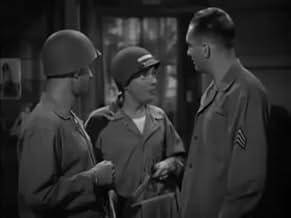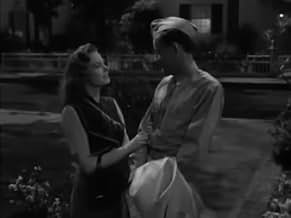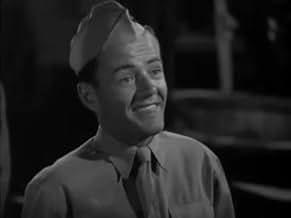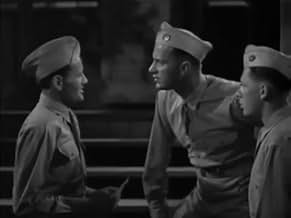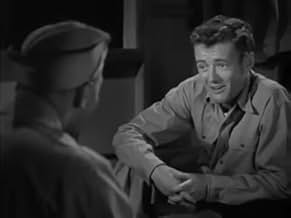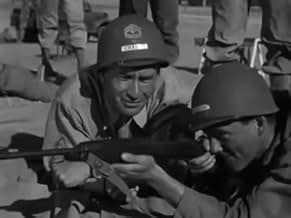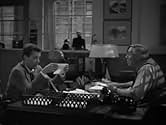Füge eine Handlung in deiner Sprache hinzuMarion Hargrove, a journalist, joins the Army to write about his training experiences. During basic training at Fort Bragg, he navigates with the aid of friends who aim to share his writing ... Alles lesenMarion Hargrove, a journalist, joins the Army to write about his training experiences. During basic training at Fort Bragg, he navigates with the aid of friends who aim to share his writing income.Marion Hargrove, a journalist, joins the Army to write about his training experiences. During basic training at Fort Bragg, he navigates with the aid of friends who aim to share his writing income.
- Regie
- Drehbuch
- Hauptbesetzung
- Auszeichnungen
- 2 Gewinne & 1 Nominierung insgesamt
- Pvt. Bill Burk
- (as Wm. 'Bill' Phillips)
- Undetermined Role
- (Unbestätigt)
- (Nicht genannt)
- Col. Forbes
- (Nicht genannt)
- Field Operator
- (Nicht genannt)
- Corporal
- (Nicht genannt)
- Mr. Holliday
- (Nicht genannt)
Empfohlene Bewertungen
As a service comedy, the film is much tamer than the uproarious service comedies of the 50's (e.g. Mr. Roberts {1955}; Operation Mad Ball {1957}). But then, audiences of the 50's could relax and enjoy a lighter side of WWII since they didn't have to face a shooting war on the outside. I expect that accounts for this film's milder approach, which bases its humor on character instead of uproarious situations. After all, training for war might have a lighter side, but it should not be made to look too funny, even for escapist-seeking wartime audiences (1944).
Anyway, I agree that as a comedy, the movie is pretty thin gruel, especially after six decades. Still, the main characters are lively and likable, while Walker is quite good at being youthfully naïve, which may be just enough for a slow evening.
But the legacy of the film and its lasting impact comes from the experiences of Hargrove, a war correspondent known for his humorous essays. The essays became the basis for a book which became the basis for this film. And it did so well at the box office that MGM commissioned a sequel which again starred Mr. Walker, though Miss Reed was not in it.
The real-life Marion Hargrove went on to write screenplays and television scripts. He wrote many westerns and episodes of 'The Waltons' which in its later seasons depicts the conflicts of World War II, which Mr. Hargrove experienced first-hand.
***** See Here, Private Hargrove (3/18/44) Wesley Ruggles ~ Robert Walker, Keenan Wynn, Donna Reed, George Offerman Jr.
Wusstest du schon
- WissenswertesMarion Hargrove asked permission to consult on the movie, but the Army denied his request. He had been promoted to sergeant by the time this picture was completed. The Army even denied his request to see a preview of the film.
- Zitate
Pvt. Marion Hargrove: I'm so used to K.P. that even in Fayetteville, if I see a garbage can on the street, I stop and polish it.
- VerbindungenFollowed by What Next, Corporal Hargrove? (1945)
- SoundtracksIn My Arms
(1944) (uncredited)
Lyrics by Frank Loesser
Music by Ted Grouya
Variations played in the opening credits and often throughout the movie
Sung by Bob Crosby and the soldiers in the canteen
Partially sung later by Robert Walker with modified lyrics
Top-Auswahl
Details
- Laufzeit
- 1 Std. 41 Min.(101 min)
- Farbe
- Seitenverhältnis
- 1.37 : 1


